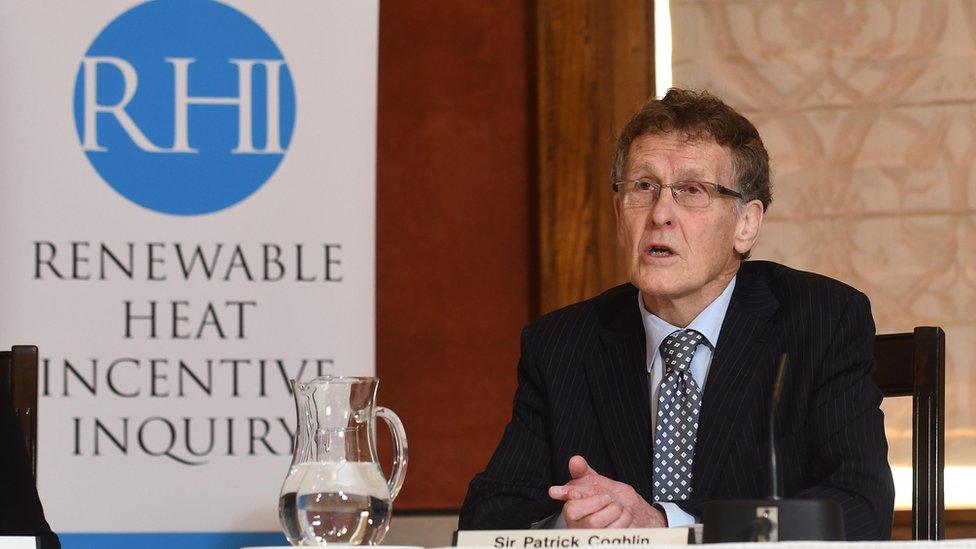RHI payments list published by Department for the Economy
- Published
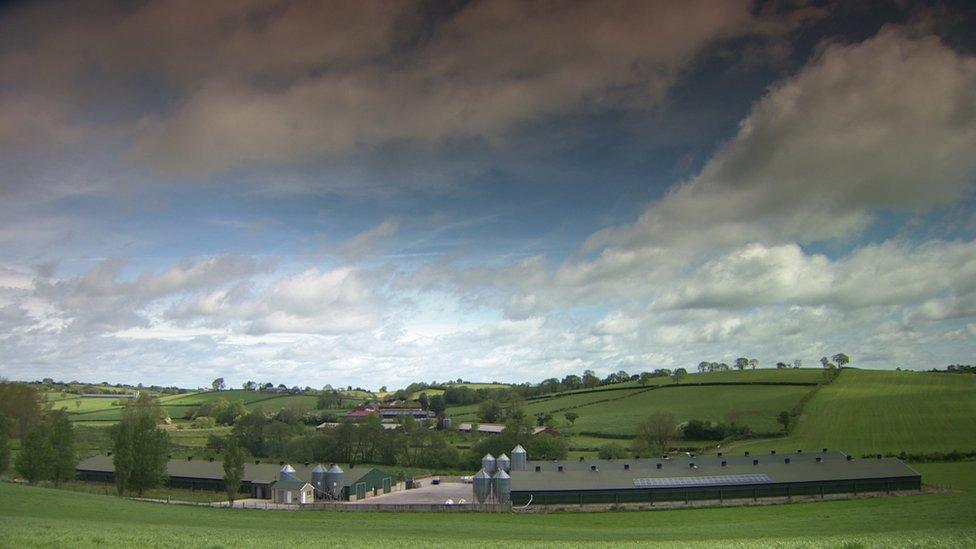
Scores of poultry businesses joined the RHI scheme before it closed last year
A full list of companies that get subsidy payments under a flawed green energy scheme has been published by the Department for the Economy.
Details of payments under the Renewable Heat Incentive (RHI) scheme were released online on Wednesday afternoon, external.
The information includes names, partial postcodes and the amount of money paid to each recipient since 2012.
The department said inclusion on the list did not suggest any wrongdoing on the part of claimants.
There are 821 claimants on the RHI list who shared a total of £62m between 2012 and February this year.
The move to release their details follows the partial publication in March of the details of almost 400 companies in the scheme.
The publication of information on personal participants was delayed until now to ensure it complied with data protection laws.
The details of about 40 installations have been withheld from Wednesday's list for data protection reasons.
Some business owners claim they are being made scapegoats for a poorly-designed scheme, which at one point had a projected overspend of almost £500m.
A lack of cost controls, a generous subsidy rate and a huge spike in applications in 2015 led to it being shut down.
'Misrepresented'
The Renewable Heat Association, which represents some RHI boiler owners, said it was "disappointed" by the release of the list.
"We must ask the question as to why the department has put so much effort into naming the scheme participants, who are suffering as a consequence of its own process in setting up and managing the RHI scheme," a spokesman said.
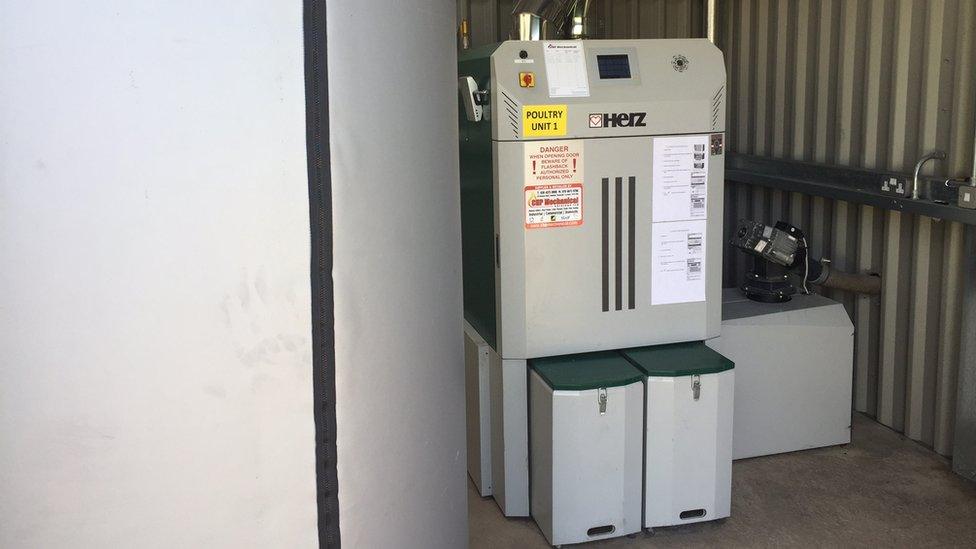
The RHI scheme was set up to encourage users to switch to biomass heating systems
"The names, grades and salaries of the civil servants who designed, managed and policed the scheme are not available on the Department for the Economy website."
The association added that some of the figures that were being circulated "seem to be misrepresented by up to 300% per year".
'Unviable'
A leading poultry farmer and senior member of the Ulster Farmers Union who is named in the list said scheme participants were being unfairly treated.
Tom Forgrave has 10 boilers and earned £750,000 in subsidy payments.
He said he had invested more than £500,000 in the technology and was still paying it off.
Mr Forgrave said the cost of loan repayments and a hefty fuel bill meant he had been making about £20,000 a year from RHI.
He believed the change in tariff would leave him £120,000 a year worse off and leave his business "unviable".
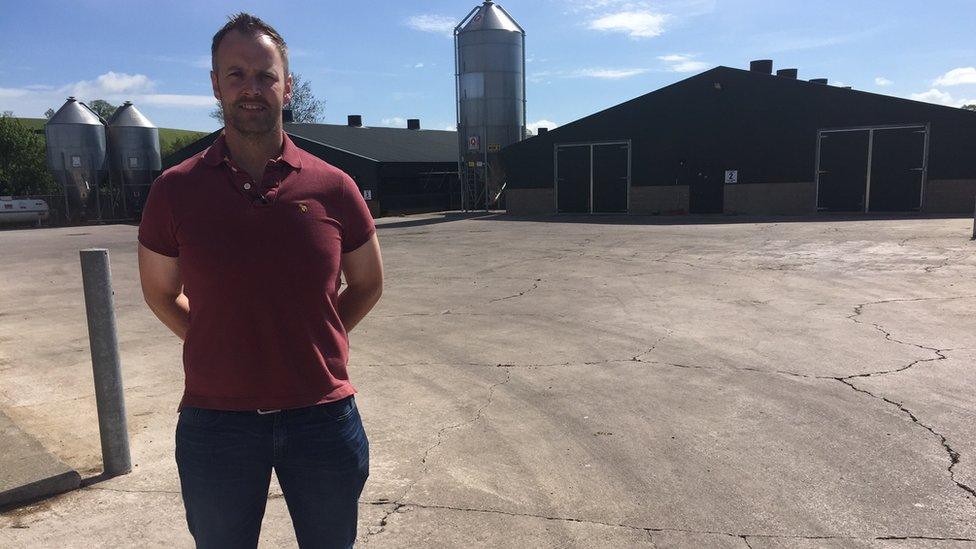
Reduced RHI payments will have "dire consequences" for Gary Liggett's poultry farm, he claims
Gary Liggett has five RHI boilers on his poultry farm near Eglish, County Tyrone.
He said that under the original tariff he would have had about £25,000 a year in RHI income after finance and running costs.
But reduced tariff payments introduced in April will have "dire consequences" for the cash flow of his business, which produces 750,000 birds a year, he added.
He will be paying back a £300,000 investment for six more years, with the loans secured on his farm.
Until then, he said, instead of giving him a £25,000 income, his boilers will now cost him almost £40,000 a year to finance and run.
"I'll have to find the shortfall out of my chicken returns and the cash flow just will not add up."
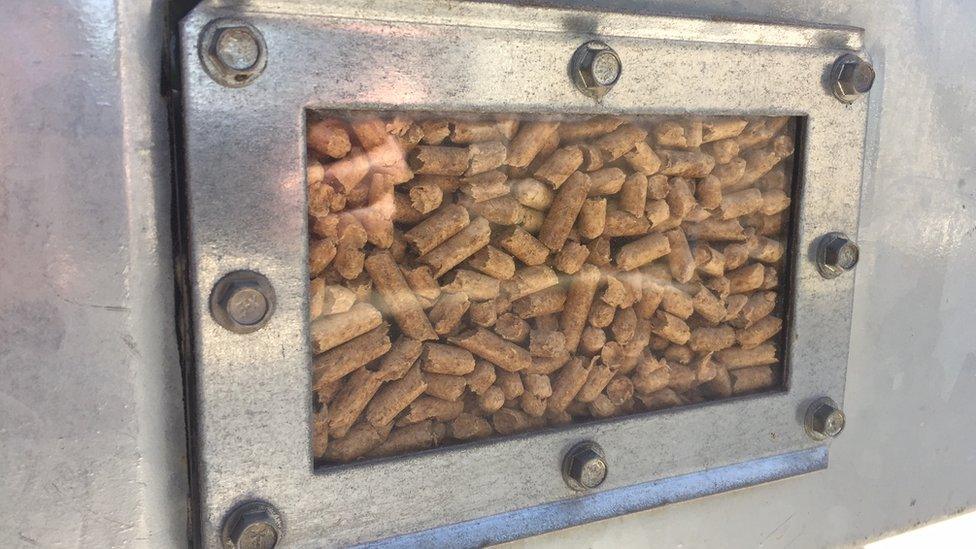
Wood pellets are the fuel for biomass boilers that were installed through the RHI scheme
He said he had invested in the scheme in good faith on the promise of guaranteed tariffs for the 20-year lifetime of the scheme.
Genuine users had not abused it and were being "hung out to dry", he claimed.
Overspend
Former first minister Arlene Foster set up the RHI scheme in 2012 when she was enterprise minister.
But flaws in setting its subsidy rate left it open to abuse as claimants could earn more cash the more fuel they burned.
The lack of cost controls led to an overspend that could cost taxpayers £490m over the next 20 years.
In January, a coalition led by Mrs Foster's Democratic Unionist Party and Sinn Féin collapsed after the then deputy first minister Martin McGuinness resigned over her refusal to step aside during an inquiry into the debacle.
A public inquiry into the botched scheme is being led by retired judge Sir Patrick Coghlin, with public evidence hearings expected to begin in the autumn.
- Published7 November 2017

- Published23 October 2019

- Published17 January 2017
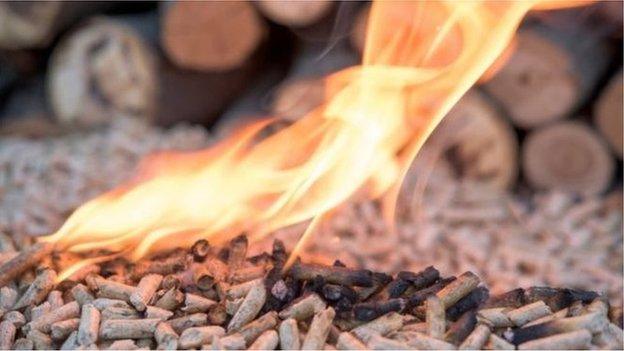
- Published27 April 2017
